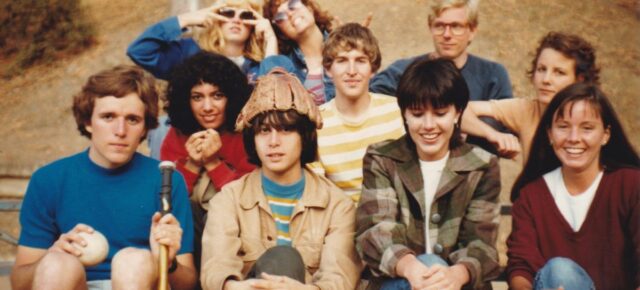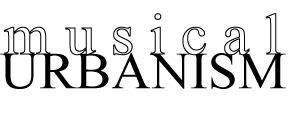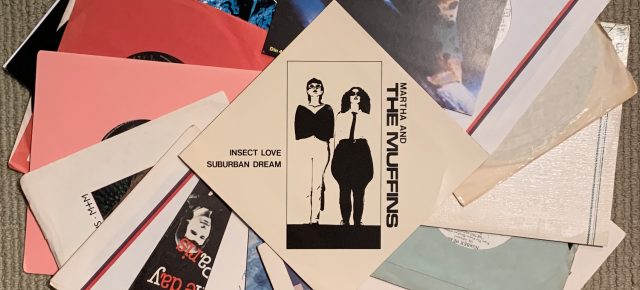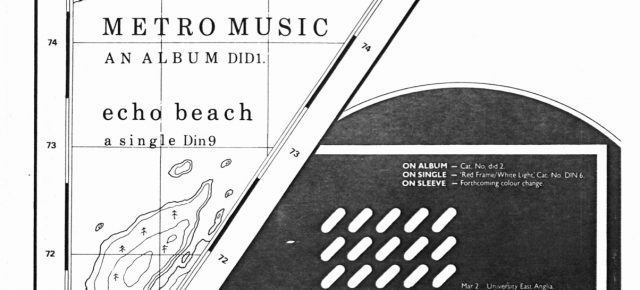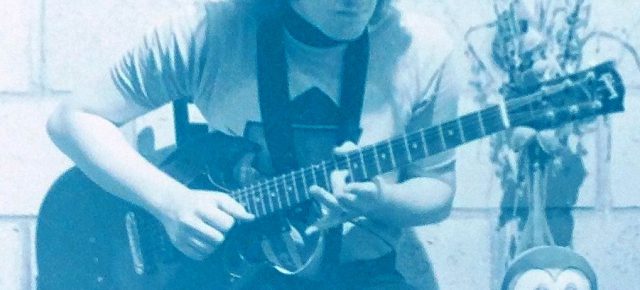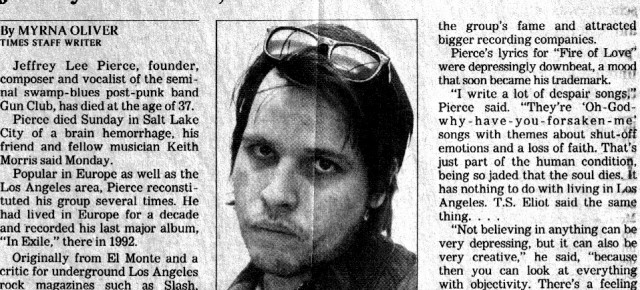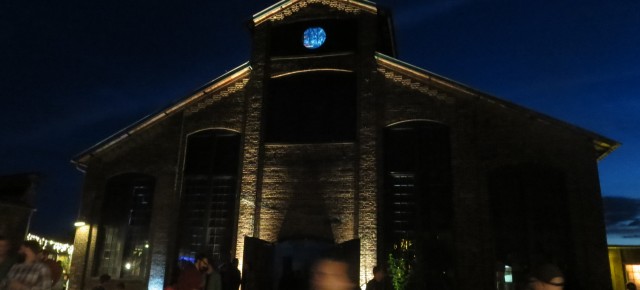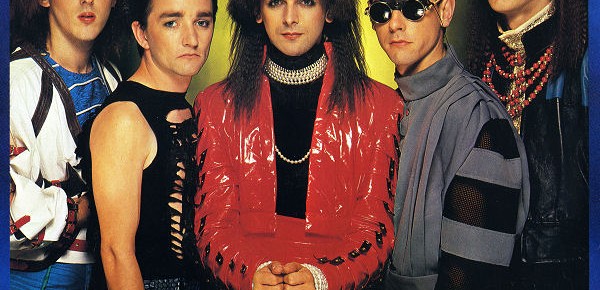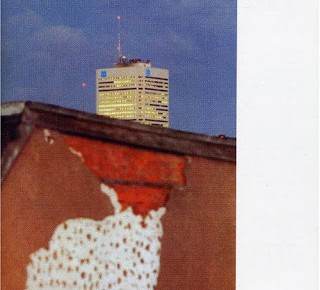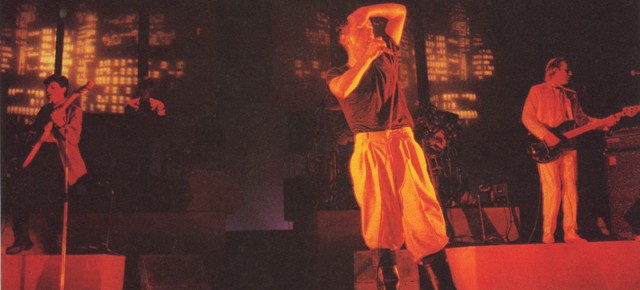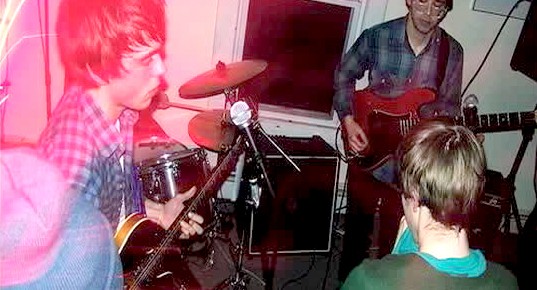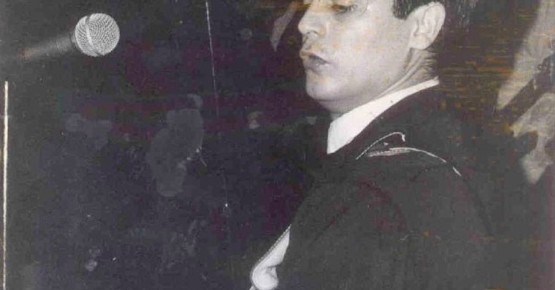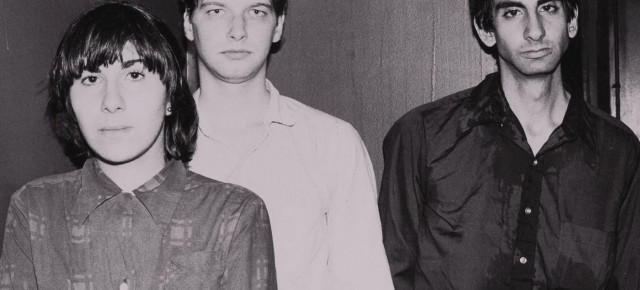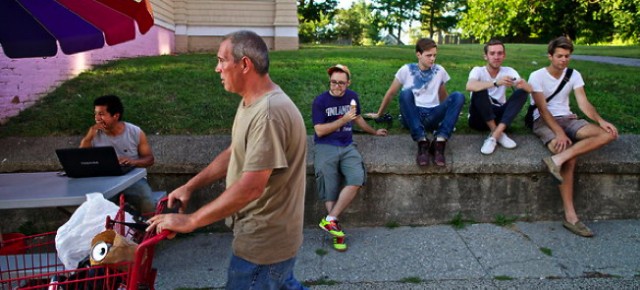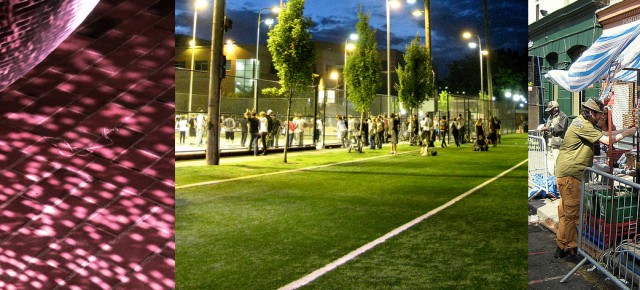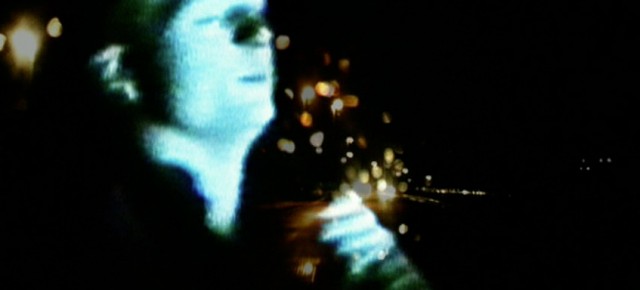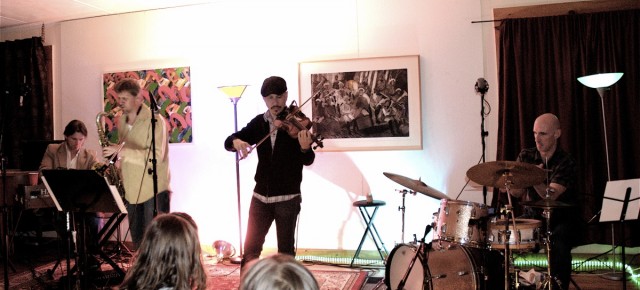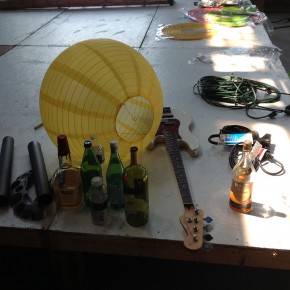
Hudson NY: the day before Basilica Music Festival, a set on Flickr. For best results, view this set as a slideshow with captions on (click “Show Info”). One of the more interesting new festivals to launch this year is the Basilica Music Festival. Running three days starting tomorrow in the Hudson Valley city of Hudson, in...
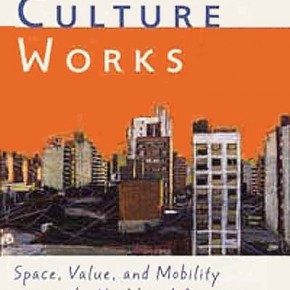
Ten years ago Richard Florida, a regional planning professor then known mostly for comparative studies of industrial management, published The Rise of the Creative Class. His dual thesis — that “creative” sectors were at the forefront of developed-world economies, and that their cauldrons of innovation, economic relations, and human labor were organized by urban form —...
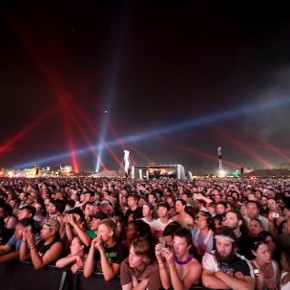
Some questions for investigations here, presented in the form of a rant. As part of my research in musical urbanism, I consume a fair amount of music coverage in print and online. Jesus Christ, all I seem to find these days is “writing” about generic touring festivals headlined by Coldplay/Metallica/Fiona Apple/Beach House/you name it. News about new music...
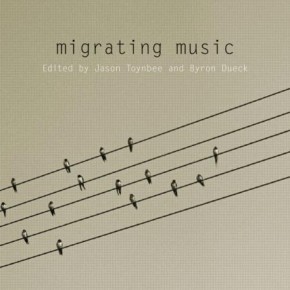
The settlement of foreign-born ethnic migrants has to be the oldest source of urban vitality. It’s also a wellspring of musical innovation. Might the latter connection offer insights into the modern city? That’s always my hope when I read books like Migrating Music (Routledge, 2012). Edited by Jayson Toynbee and Byron Dueck, this volume addresses the cultural...
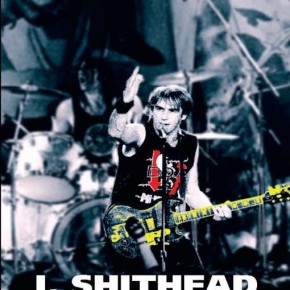
It was November 1977, and it was the first time any of us had traversed our home and native land. We soon found out what a big-ass country Canada is. The ground in Saskatchewan was covered with snow, and it was so fucking flat that you could see a grain elevator miles away. It looked...
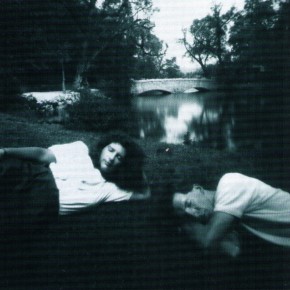
I’ve been drawn instinctively toward the music, aesthetics and story of Martha and the Muffins since I heard their debut album some 30 years ago. In my teenage years I would have ranked their 1983 album Danseparc one of my desert island discs (I still might, come to think of it). My tastes evolved toward the...
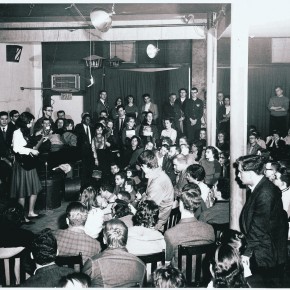
The role of folk music in America’s postwar cultural and social history doesn’t lack for testimonies. Being the privileged soundtrack to the middle-class generation born during or just after the war, the story of how this music ‘changed the world’ won’t go unrecorded thanks to Baby Boomers’ economic and political hegemony. And yet the peculiar registers...
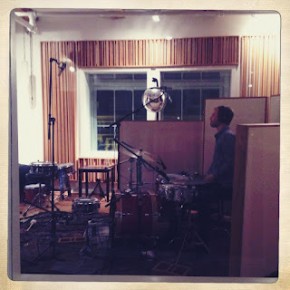
Scott Reitherman is the singer, multi-instrumentalist, songwriter and main guy behind Throw Me The Statue, an indie-pop band based in Seattle. They have two albums out on Secretly Canadian, an independent label based out of Bloomington, Indiana, and are currently in the studio recording a third one. Their 2007 debut Moonbeams got a warm reception...
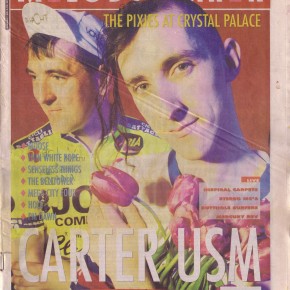
[Very pleased to feature Musical Urbanism’s first guest blogger, Andrew Stevens, a writer and researcher living in London. A Fellow of the Royal Society of Arts, Stevens is a Member of the Regional Studies Association and Urban Economics Association. -LN] I read about a band in South East 23, I thought it was me, I...
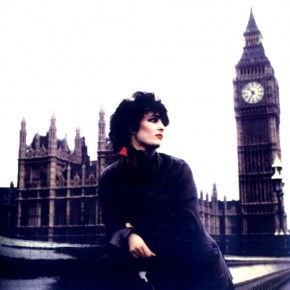
Currently I’m revising and expanding an essay I posted here a year ago, about how Joy Division came to sound like Manchester, to present at the 2012 EMP Pop Conference next month. The artistic connection between Joy Division and their city of origin is clear and powerful for many listeners, but my argument is that the connection isn’t...
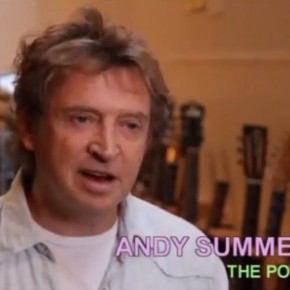
Thanks to the Slicing Up Eyeballs blog, I’ve discovered a new BBC Four music documentary, “How the Brits Rocked America: Go West,” about the three generations of British musicians, from the Beatles to Duran Duran, who scaled the walls of American pop culture. Some of them made their fortunes, many more failed, and a few just wanted...

This post contains lots of links to exciting new academic research in the field of popular music. But first, a diatribe. One of the perks faculty have at my institution is to identify books for the college library to purchase. Since I co-teach a course about Musical Urbanism, I try to keep the library up...
